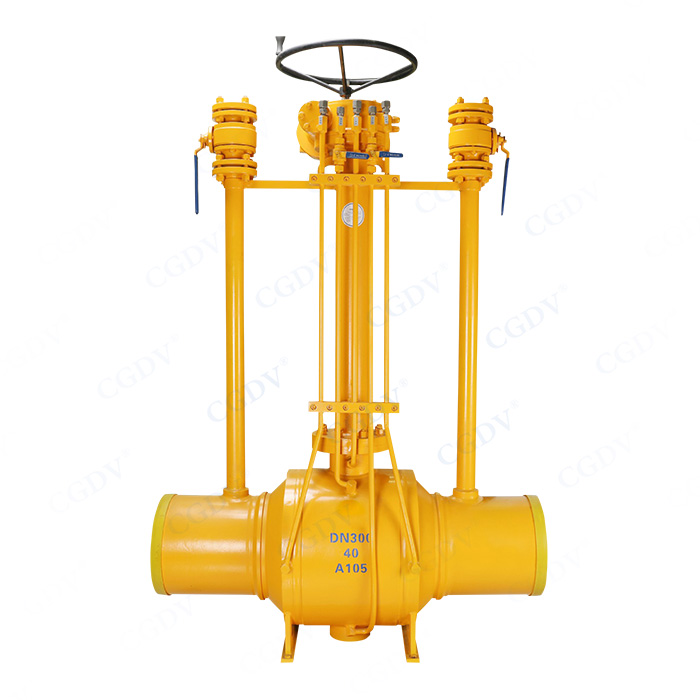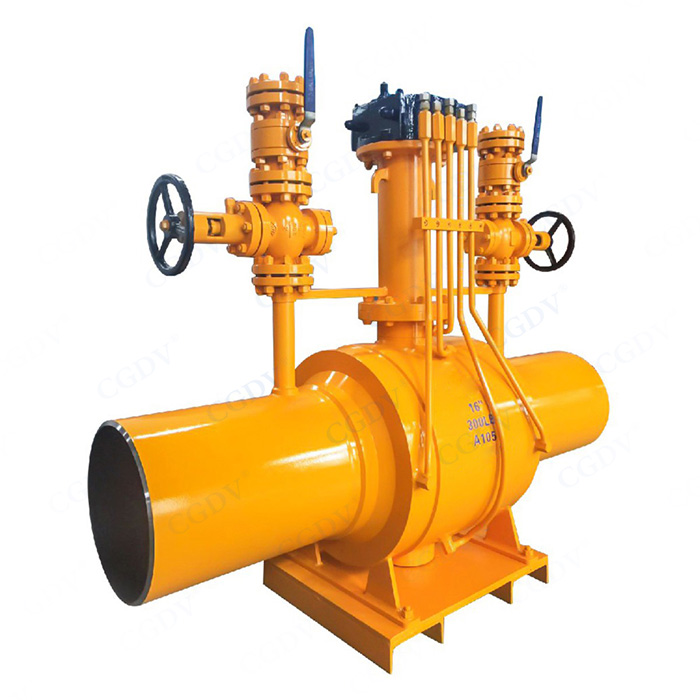

Underground fully welded ball valve is a type of valve that can be buried underground and widely used in industries such as petroleum, natural gas, and water treatment. The choice of material has a significant impact on the performance and lifespan of the valve.
The selection of materials for buried fully welded ball valves should have the characteristics of corrosion resistance, high temperature resistance, high sealing performance, and long service life, such as stainless steel, carbon steel, perfluoroelastomer, etc.
1. Corrosion resistance: Using stainless steel and high-performance sealing materials, the valve can work for a long time in various corrosive media.
2. High and low temperature resistance: Carbon steel and stainless steel materials are selected to ensure stable performance of the valve under extreme temperature conditions.
3. High sealing performance: The use of perfluoroelastomer and RTFE ensures the sealing performance of the valve under high pressure conditions.
4. Long lifespan: Excellent materials and sophisticated craftsmanship enable valves to have a longer service life and lower maintenance costs.
Buried fully welded ball valve
Specifically, the valve body material can be selected from carbon steel materials such as ST37.0, A106-B, and 20 # steel
ST37.0 is a commonly used carbon steel material with good mechanical properties and weldability, suitable for medium and low pressure pipeline systems.
A106-B is a carbon steel pipe widely used in high temperature and high pressure conditions, with excellent strength and corrosion resistance.
3. No.20 steel is a high-quality carbon structural steel with low carbon content, which has good plasticity and toughness and is suitable for valve body manufacturing under various working conditions.
The ball of buried fully welded ball valves is usually made of stainless steel material, and there are mainly two types:
1. 304 stainless steel: 304 stainless steel is one of the most common stainless steel materials, with excellent corrosion resistance and mechanical properties, suitable for most media.
2. 316 stainless steel: 316 stainless steel has added molybdenum element on the basis of 304, further improving its corrosion resistance, especially in chlorine containing environments.
The valve stem is an important component of a ball valve, and its material is generally 2Cr13 stainless steel, which is a chromium containing martensitic stainless steel with good strength, hardness, and corrosion resistance, and can withstand high mechanical stress.
Valve stem seals usually use perfluoroelastomer (FFKM), which is a high-performance elastomer with high chemical corrosion resistance and high temperature resistance, ensuring sealing effectiveness under harsh working conditions.
Spherical seals often use RTFE (Enhanced Polytetrafluoroethylene), which is based on PTFE (Polytetrafluoroethylene) with added reinforcing materials such as carbon fiber. RTFE has better wear resistance and mechanical strength, while maintaining PTFE's excellent chemical corrosion resistance.
Gaodun Valve, a professional manufacturer of fully welded ball valves, service hotline: 178 6787 1159/135 8767 9260

 中文
中文 English
English Россия
Россия